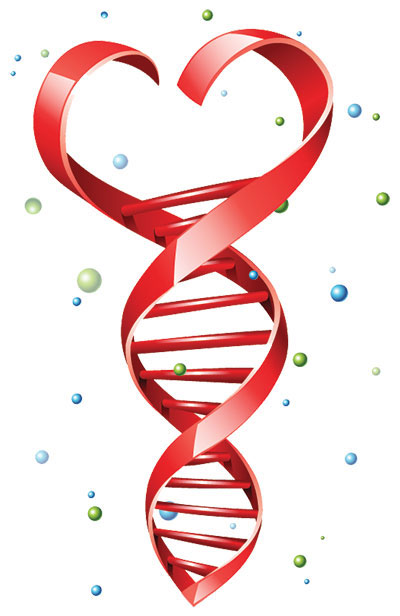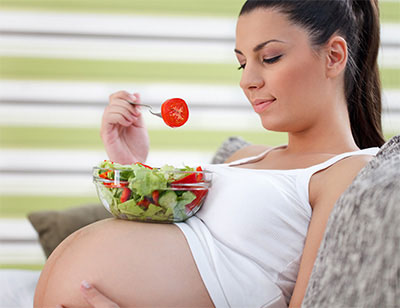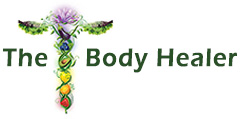Before Birth - Prenatal Care
Life begins much earlier than we think. Contrary to what most of us realize, life does not actually begin the moment of birth. Conclusive studies now show that life begins far earlier, and that we are very aware of our environment from within the womb.
Mom's mental state during pregnancy plays a significant impact on the development of her unborn child. A fetus is biologically responsive to its environment before birth because it needs to be for its survival after birth. In other words, nature is preparing the baby to survive in the environment its mother is already a part of. No matter how great our genes may be, the environment we are raised in has a substantial impact on how these genes can and will be expressed.
Genes vs. Environment - A Wake-up Call

In his book The Secret Life of the Unborn Child, Dr. Thomas Verny, a pioneer in prenatal and perinatal psychiatry, states that our influence on children begins in the womb. Neuroscientists are discovering that the fetal nervous system has the sensory capability to be significantly impacted by its environment. In fact, experiences in the womb can profoundly influence long-term health and behavior.
There is mounting evidence that conditions in the womb are equally and perhaps even more important than our genes in determining our mental and physical health. A wide range of chronic diseases ranging from osteoporosis to depression have been intimately linked to prenatal developmental influences.(1) Low birth weight due to conditions in the womb are also linked to adult conditions ranging from heart disease to diabetes and obesity:(2)
- A male child who weighs less than 5.5 lbs. at birth has a 50% greater chance of heart disease than a male of normal birth weight.(3)
- Underweight babies are 3 times more likely to develop diabetes by the age of 60 yrs.(4)
"It is the environment that helps determine which genes are activated and which are not."
Dr. Daniel J. Siegel,
The Developing Mind
|
“For the growing brain of a young child, the social world supplies the most important experiences influencing the expression of genes, which determines how neurons connect to one another in creating the neuronal pathways, which give rise to mental activity,” writes Dr. Daniel J. Siegel in his book The Developing Mind. Siegel states it is the environment that helps determine which genes are activated and which are not. In essence, this means that as parents we act as genetic engineers.
A Healthy Pregnancy
After a child is conceived, the attitudes of the parents play an important role in the development of a growing fetus. Studies show that what a fetus experiences in the womb helps lay the foundation for personality and emotional traits. The environment of a pregnant mother can and will affect a developing fetus. When a mother experiences stress, the body physically responds by producing stress hormones that enter the blood stream. This response alters the distribution of blood flow in the fetus and changes the character of a developing child's physiology.(5)
 As mothers, our bodies are biologically built to birth a child (unless we have a physical condition preventing us from doing so). All we need to do is supply our body with what it needs to support this growth. Understanding how best to treat our bodies during pregnancy is extremely important for both mom's health and for the health the unborn children.
As mothers, our bodies are biologically built to birth a child (unless we have a physical condition preventing us from doing so). All we need to do is supply our body with what it needs to support this growth. Understanding how best to treat our bodies during pregnancy is extremely important for both mom's health and for the health the unborn children.
Cultivating healthy habits, while reducing and eliminating unhealthy ones is a big part of this process. We cannot simply pass this responsibility over to our pediatrician, or avoid responsibility by popping an array of prenatal vitamin pills (most of which are now manufactured in China, and some very common ones which have been clinically proven to be dangerous for our health. Is folic acid a supplement you are taking? If so, seriously rethink that choice.

Learn about the pros & cons of supplements & why common
synthetic pre-natal supplements can do more harm than good:
The Body Healer Protocol...Despite what the supplement industry tells you, unless you have a diagnosed deficiency, supplements are NOT necessary if we eat a healthy and natural diet that is filled with fresh, whole foods. A good doctor (usually a Naturopathic Doctor) will help you to understand that supplement pill-popping is no substitute for real food. When did we come to believe that health depends on supplement pills?
The unborn child is dependent upon its mother for food and oxygen, and for a child to be well nourished, a mother needs to be well nourished. Ill health, an unhealthy diet, or emotional trauma that mom suffers can lower the health and vitality, as well as the immune system of an unborn child. The healthier you are as a mother, the healthier your unborn child will be. Undernourishment from a poor diet may not only manifest as a physical condition in your baby, but can also affect their temperament and personality.
What does a mom need for a healthy pregnancy?
Let's take a look:
#1 A nutritious diet...
During pregnancy, aim for a wide variety of fresh, healthy, and if possible, organic foods. These foods should consist of:
75% of your diet
fruits and vegetables
(which are naturally very nutrient-dense foods)

25% of your diet
nuts, seeds, legumes, sprouted grains, animal products
(organic pasture-raised meats, eggs, wild fish, raw honey, and raw dairy)
Avoiding all processed soy products is important for our general health, but it is especially important for pregnant moms. Vegan mothers may significantly affect the health of their unborn baby by drinking soy milk and high intakes of soy-based products.
Diet Affects Jaw Structure & Teeth
Dr. Weston A. Price conducted substantial research on various traditional cultures throughout the world and made a direct correlation between dental deformities and diet. He discovered that if parents ate a healthy diet, then they had a much greater chance of having children with straighter teeth, healthier bones, and clearer eyesight.
#2 A stress-free work & home environment...
A healthy emotional and psychological state of mind is important during pregnancy. The impact that stress has on the organs and systems of our entire body has been proven conclusively to have a devastating consequence on our health and well-being.
Sonograms have clearly shown that a fetus actively responds to activities a mother is engaged in, or to sudden loud noises in the environment such as shouting or gunshots or glass breaking. A staggering 51% of a child's intelligence potential can be controlled by these environmental factors. High and low IQ are not as random as we previously thought; IQ has been linked directly to altered blood flow to the growing fetus. Things that affect fetal blood flow include stress, drugs, alcohol, and smoking.
#3 Plenty of rest & sleep...

The importance of a good night's rest is very important for our health, pregnant or not. This is the time when the body detoxifies and works to restore our systems, free of physical activity. It also improves our mental clarity and alertness and awareness.
It is normal to feel more tired during pregnancy as your body is also focusing its energy on your growing baby. As your pregnancy progresses, you will also be carrying more weight which is very tiring. Your heart rate also increases to pump enough blood for not only your body, but for the uterus and your baby's body. Sleeping a good 8-10 hours is average and perfectly normal.
Most women find it difficult to get a good night's sleep as their pregnancy progresses:
- Favorite positions can suddenly feel very uncomfortable. Lying on your stomach can not only become challenging, but also puts a lot of pressure on the growing fetus. Experiment with different positions, and by placing a pillow under your belly and between your legs. Pregnancy pillows help provide support for your entire body and can help some women.
- Sudden and frequent urges to pee can also interrupt your sleep. Kidneys work harder to filter the increased volume of blood during pregnancy, and process more urine. As the baby grows and the uterus expands, the pressure on your bladder also increases, meaning more trips to the bathroom.
- Carrying around the extra weight causes cramps and aches in the legs and back. During pregnancy, the body produces a hormone called relaxin to help it prepare for childbirth. Relaxin also loosens the ligaments throughout the body and can make us feel less stable and injury-prone.
Napping during the day, or even several times a day can help you balance out sleep that gets interrupted at night.
#4 Quit your addictions to smoking, alcohol, drugs, or other stimulants...

Not only is it not great for your own health, but drinking and/or smoking during pregnancy directly affects the growing fetus, including decreasing IQ scores. Bernie Devlin, a professor of psychiatry at the Univ. of Pittsburgh School of Medicine discovered that conditions during prenatal development can significantly impact a child's IQ due to the reduced fetal blood flow.
Stimulants artificially stimulate an increase in blood flow throughout the body (and growing fetus) and trigger the release of hormones. They continually manipulate the body and adrenal glands into forced stimulation, and set the stage for future adrenal fatigue and other health related issues.
#5 Daily exercise...

A healthy exercise program is not only part of a healthy pregnancy, but can help you snap back to your pre-pregnancy body much quicker after your baby is born. It can also help result in a smoother labor and delivery. Unless you are experiencing serious complications and your doctor has recommended against it, never skip out on regular exercise.
During pregnancy, it can:
- Ease or prevent back pain and other discomforts
- Boost your mood and energy levels, keeping you positive and upbeat
- Help you sleep better
- Prevent excess weight gain
- Increase stamina and muscle strength
Aim to include both stretching exercise, and low impact exercise on a daily basis.
Low Impact
Low impact aerobics such as swimming, elliptical machines, and arc trainers are great choices. Take long walks outside in the fresh air (don't forget your pup if you have one!). Strength training is also a great idea, as long as you avoid lifting heavy weights and avoid any exercises that place strain on your abdomen.
Stretching
This can involve stretching at home (check out the Body Healer protocol for a great set of stretches you can do at home). Yoga also offers many benefits during pregnancy. Visit your local yoga studio and ask about prenatal yoga classes. Many studios teach gentle yoga classes such as restorative yoga or hatha yoga where a good instructor will show you how to modify certain poses during pregnancy. The slow, deep breathing and gentle stretching helps to cultivate an inner calm and centered feeling that can be invaluable during labor and delivery.
RELATED ARTICLES
In this section...
In other sections...
View Sources & References

 As mothers, our bodies are biologically built to birth a child (unless we have a physical condition preventing us from doing so). All we need to do is supply our body with what it needs to support this growth. Understanding how best to treat our bodies during pregnancy is extremely important for both mom's health and for the health the unborn children.
As mothers, our bodies are biologically built to birth a child (unless we have a physical condition preventing us from doing so). All we need to do is supply our body with what it needs to support this growth. Understanding how best to treat our bodies during pregnancy is extremely important for both mom's health and for the health the unborn children.  Learn about the pros & cons of supplements & why common
Learn about the pros & cons of supplements & why common 




 The importance of a good night's rest is very important for our health, pregnant or not. This is the time when the body detoxifies and works to restore our systems, free of physical activity. It also improves our mental clarity and alertness and awareness.
The importance of a good night's rest is very important for our health, pregnant or not. This is the time when the body detoxifies and works to restore our systems, free of physical activity. It also improves our mental clarity and alertness and awareness. Not only is it not great for your own health, but drinking and/or smoking during pregnancy directly affects the growing fetus, including decreasing IQ scores. Bernie Devlin, a professor of psychiatry at the Univ. of Pittsburgh School of Medicine discovered that conditions during prenatal development can significantly impact a child's IQ due to the reduced fetal blood flow.
Not only is it not great for your own health, but drinking and/or smoking during pregnancy directly affects the growing fetus, including decreasing IQ scores. Bernie Devlin, a professor of psychiatry at the Univ. of Pittsburgh School of Medicine discovered that conditions during prenatal development can significantly impact a child's IQ due to the reduced fetal blood flow. A healthy exercise program is not only part of a healthy pregnancy, but can help you snap back to your pre-pregnancy body much quicker after your baby is born. It can also help result in a smoother labor and delivery. Unless you are experiencing serious complications and your doctor has recommended against it, never skip out on regular exercise.
A healthy exercise program is not only part of a healthy pregnancy, but can help you snap back to your pre-pregnancy body much quicker after your baby is born. It can also help result in a smoother labor and delivery. Unless you are experiencing serious complications and your doctor has recommended against it, never skip out on regular exercise.